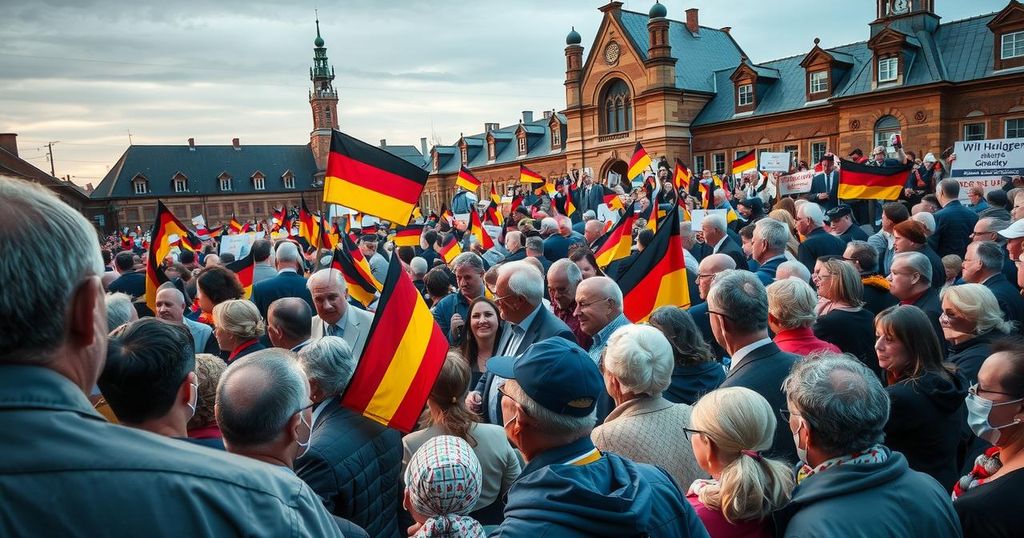The deadly attack at the Magdeburg Christmas market has become a catalyst for political discourse surrounding immigration reform in Germany, particularly with the elections approaching. Misinformation and criticism directed at the current government by far-right parties reflect an increasing trend to frame migration as a security hazard. This incident may bolster right-wing narratives and influence voter opinions.
The recent attack at the Magdeburg Christmas market, which resulted in the loss of at least five lives, has quickly become a focal point in the lead-up to Germany’s federal elections in February. The incident has elicited a flurry of disinformation, claiming there were multiple attackers linked to the refugee crisis, particularly targeting individuals from Syria. Prominent figures, such as Austrian nationalist Martin Sellner and members of the far-right Alternative for Germany (AfD), have sought to exploit the tragedy, suggesting that stricter immigration policies would have prevented such acts.
This narrative is supported by various AfD officials, who have blamed the established parties for failing to ensure public safety and have proposed severe limitations on migration as a solution. Political analysis indicates that this event could significantly shift public discourse to the right, framing migration primarily as a security threat rather than considering its multifaceted impacts, such as addressing Germany’s labor shortage. The German government, already under scrutiny for its immigration policies, will likely face intensified criticism from right-wing parties and external influences, including disinformation campaigns from foreign actors.
Additionally, it has come to light that German authorities had previously been warned about the suspect, raising questions regarding their responsiveness to security concerns. As political tensions rise, the focus on security and migration is expected to dominate the election discussions, potentially affecting party positions and voter sentiments.
The Magdeburg attack underscores the rising tensions surrounding immigration policies in Germany, especially with the approaching federal elections. The incident has prompted a wave of misinformation that aligns with far-right agendas, which aim to manipulate public perception about the refugee crisis. Historically, security has been a significant issue in German politics, heavily influencing election outcomes and leading to the securitization of migration narratives. The interplay between actual security risks and the political use of such incidents has become increasingly critical as parties navigate public sentiments in an already polarized environment.
In summary, the Magdeburg attack is likely to reshape the political landscape ahead of Germany’s federal elections, amplifying right-wing sentiments about immigration as a security issue. Disinformation surrounding the event has been leveraged by far-right politicians to shift blame and rally support for stringent migration policies. As the elections approach, it remains to be seen how the established parties will respond to these emerging narratives and what implications they will hold for governance and public safety in Germany.
Original Source: www.dw.com






